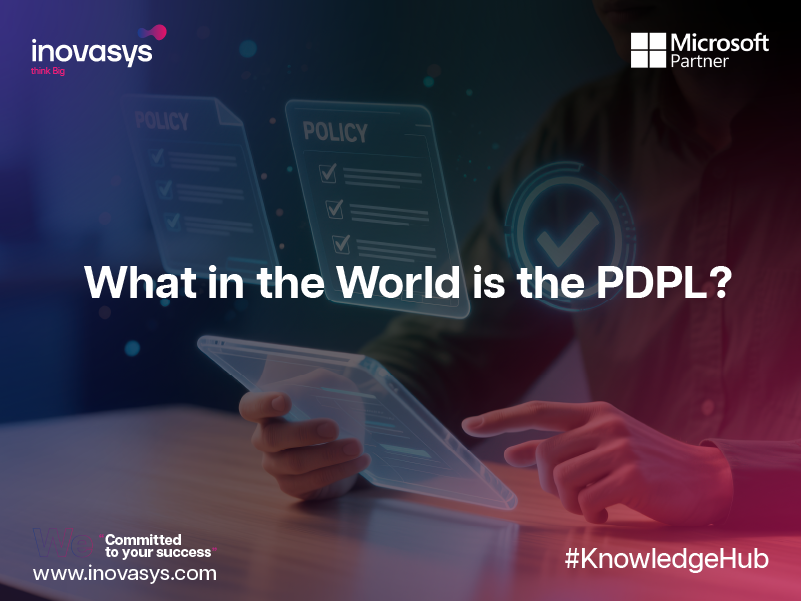Inovasys, founded in 2014, has been a leader in providing advanced technology solutions. By 2020, it became known as a service provider. The company aims to be the best partner for businesses looking to improve their operations with digital technology.
Articles & Press Release

What in the World is the PDPL?
Alright, grab your gahwa, and let's talk. You know that new shawarma place that opened up? The one with the amazing garlic sauce? You downloaded their loyalty app, and it asked for your name, number, email, date of birth, location, and access to your contacts. You hesitated for a second, but that free shawarma was calling your name, so you clicked "Agree."
We've all been there. But have you ever stopped to wonder what they do with all that info? That, my friend, is where the Personal Data Protection Law (PDPL) steps in. Think of it as a new, digital rulebook for how businesses in Saudi Arabia must treat your personal information. It's not here to ruin the fun; it's here to make sure everyone plays fair.
So, What's the Big Deal?
In simple terms, the PDPL gives you control over your data. It’s based on a simple but powerful idea: your personal information belongs to you.
Imagine your personal data is like your home. Before the PDPL, anyone could knock on your door, ask to come in, and then basically redecorate, throw a party, and share your address with all their friends without your explicit say-so.
Now, with the PDPL, there are rules for your "houseguests" (the businesses):
-
They need a good reason to knock: They can't just collect your data for funsies. They need a legitimate purpose.
-
They have to ask for permission nicely: This is called consent. They need to be clear about what they're collecting and why. No more hiding it in 50 pages of legal text that no one reads.
-
They can't overstay their welcome: They can only keep your data for as long as they need it for that specific purpose.
-
They have to keep your house safe: They are responsible for protecting your data from being lost or stolen.
This new law, enforced by the Saudi Data & AI Authority (SDAIA), isn't just a friendly suggestion. It has teeth. Businesses that don't follow the rules can face some hefty fines.
Who's Who in the PDPL?
You'll hear a few key terms thrown around, but don't worry, they're easy to understand.
-
Data Subject: That's you! The person whose data is being collected. You're the main character in this story.
-
Controller: That's the business (like the shawarma app) that decides why and how your data is collected. They're the ones in charge and hold the most responsibility.
-
Processor: This is any company the Controller hires to handle the data for them, like a cloud storage provider or a marketing company. They're working on the Controller's instructions.
So, when you gave your details to the shawarma app, you were the Data Subject, the shawarma company was the Controller, and if they use a third-party service to send you text message offers, that service is the Processor. Simple, right?
Why Should You Care?
For individuals, it means more transparency and control. It's about building digital trust. You can confidently share your information knowing there are rules in place to protect it.
For businesses, this is a golden opportunity. Complying with the PDPL isn't just about avoiding fines; it's about building a reputation as a trustworthy company. Customers are more loyal to businesses they trust. Being great at privacy is now a competitive advantage. It's the new "customer service."
That’s where Cybersecurity and GRC Services come in. Together, these services help organizations ensure compliance, manage risks effectively, and strengthen defenses against evolving digital threats while aligning with PDPL requirements.
So, the next time an app asks for your data, you'll know that the PDPL is in your corner, making sure your digital life is a little bit safer.
Up Next: We'll dive into the most important part of the PDPL relationship: Consent. How do businesses get it right, and what makes it valid? Stay tuned!

